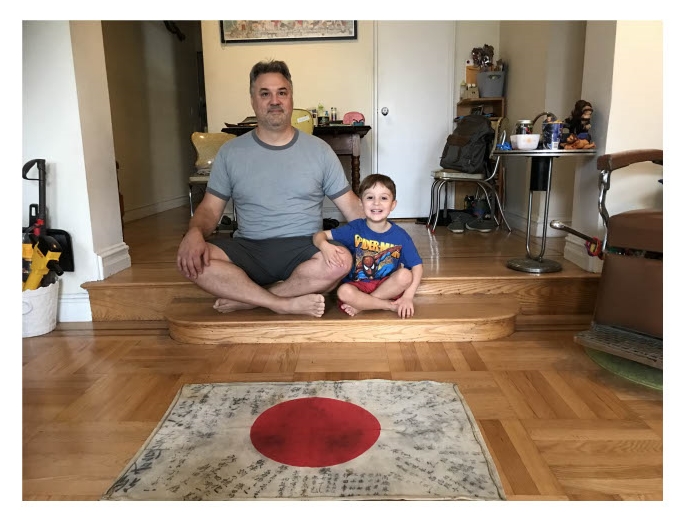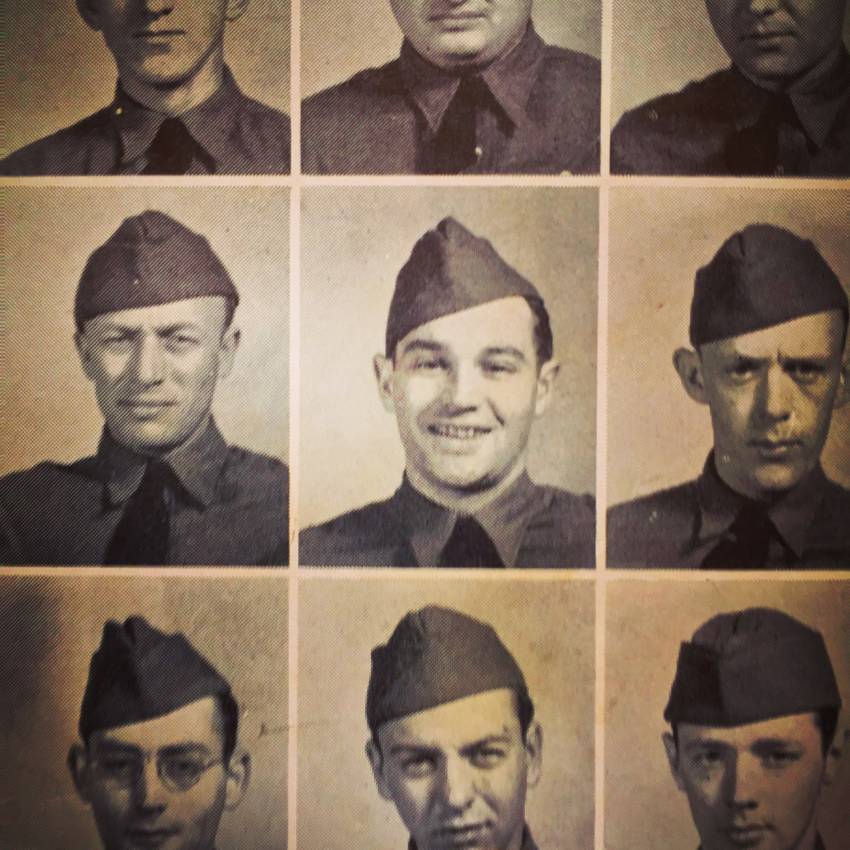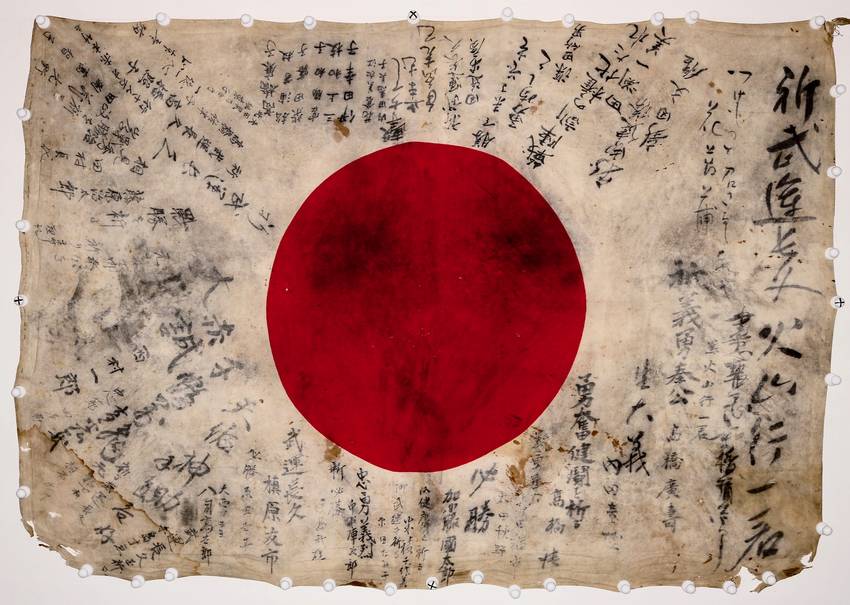【STARS AND STRIPES】Sole memento: American vet’s grandson returns WWII souvenir to Japanese son
2024-08-28



Scott Stein and his son, Nicholas, pose with a Japanese flag his grandfather, Bernard Stein, brought home after serving in the Philippines during World War II.
The late Bernard Stein, center, fought in the Philippines during World War II as a member of the 38th Infantry Division.

This flag, brought to America by a U.S.soldier who served in the Philippines during the World War II, has been returned to the original owner's family members in Japan.
TOKYO — A Japanese flag, brought to America by a U.S. soldier who served in the Philippines during World War II, has returned home.
The signature-covered flag was taken as a war trophy by the late Bernard Stein, who fought in the Philippines as a member of the U.S. Army’s 38th Infantry Division, known as the Avengers of Bataan. The division landed on the main island of Luzon in January 1945 and helped liberate the Bataan Peninsula and secure Manila Bay.
Almost eight decades later, the veteran’s grandson, Scott Stein, an artists’ agent in New York City, sent the banner back to Japan so it could be given to relatives of the fallen Japanese soldier who carried it into battle.
It was presented to the family on Sunday during a ceremony in a town in southwestern Honshu, the largest of Japan’s four main islands. The late Bernard Stein, center, fought in the Philippines during World War II as a member of the 38th Infantry Division. (Scott Stein)
Many Japanese soldiers carried their country’s flags inscribed with names and messages from family and friends for good luck. Stein inherited the flag from his grandfather, who became a building inspector in Nassau County, N.Y., after the war and died two decades ago, he told Stars and Stripes during an Aug. 8 video call from New York.
As a youngster, he was fascinated by the banner and a Japanese sword at his grandfather’s home, but he didn’t know how they got there. “He never talked about his wartime experiences,” Stein said. “He must have seen some intense stuff in the war, but there were no mental health things when he returned. He just kept it bottled up.” Stein had no plans to hand the flag down to his own son. It was time for it to return home, “especially for the family that might not have any remnant of their lost loved one,” he said.
The search for the flag’s original owner began in 2017, when Stein sought help restoring the item. A friend Stein asked about fabric restoration told him about the Obon Society.
The nonprofit group helps veterans and their families return old war trophies like flags and swords. Japanese researchers helped the society trace some of the 50 signatures on the flag to Tottori prefecture, Keiko Ziak, founder of the Obon Society, said during the video call. It turned out that the soldier who carried the flag into battle, Yukikazu Hiyama, was born in Nichinan town on Feb. 15, 1922. He served as a corporal with the 1st Independent Tank Brigade and died in China on Aug. 17, 1945.
It was the first lost WWII flag returned to Tottori prefecture, Ziak said. It wasn’t only the fallen Japanese soldier’s family who was excited about the flag’s return, she said. This flag, brought to America by a U.S.soldier who served in the Philippines during the World War II, has been returned to the original owner's family members in Japan. (Scott Stein)
“The flag includes the names of many members of the community and people recognize their grandfathers’ or fathers’ names on it,” she said. The flag was given back to the fallen soldier’s son, Tsukasa Hiyama, 81. “I appreciate that Mr. Stein, who had the flag, returned it,” he said by phone Monday. “I want to thank him for it.” Hiyama also thanked the Obon Society and the Japan War-Bereaved Families Association, which helped find him.
The only son of the fallen soldier was born July 5, 1943, the same day his father left home for the Imperial Army and the war, Hiyama said. “Honestly, I don’t know anything about him,” he said of his father, adding that his parents had been married only a year when he was born. The Obon Society called in April to say that the flag would be returned, Hiyama said. “I was surprised,” he said, adding he didn’t think something that belonged to his father would be returned after all these years.
Hiyama said he hopes to display the flag so relatives of the people who signed it also see it. It is the only memento he has of his father. “I want to take time to take a close look at it,” he said.